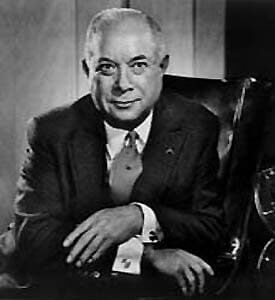
No one in American history has done more to transform the way that we receive information than David Sarnoff. From his humble beginnings as the man who first spread the news of the sinking Titanic via telegraph to his creation of the television, our lives would not be the same were it not for Sarnoff’s innovation, persistence and skill. His employers, including Radio Corp. of America, were happy to have him on board as he virtually made them into the companies that they are today.
1. First Job
Sarnoff’s first job when he came to America as a young boy was selling newspapers. He had the foresight to buy a telegraph key at the age of 15, which he learned how to operate and secured more positions. He became a junior operator for a telegraph company, and thus began his career in the communications business.
2. First to Distribute News of the Titanic
It was Sarnoff who was at the telegraph post when the Titanic sent its sinking message. Sarnoff remained at his post for the next three days straight in order to relay the information given as soon as he was able. Sarnoff was the one who first distributed the news of the Titanic to the world.
3. Bring Music Into The Home Wirelessly
Sarnoff’s next big idea was to take the radio, then being used mainly in shipping, and turn it into something that could be used by the general public in their homes, much like a piano or a phonograph. His idea was to bring music into the home wirelessly.
4. Forming the National Broadcasting Co.
In order to be successful in selling his radios, Sarnoff knew that he needed to create programs that people could listen to and be entertained by. So to solve this problem he created national broadcasts by stringing together hundreds of stations. He created a network and as general manager of RCA, he formed the National Broadcasting Co. as a subsidiary.
5. Innovation Delayed By War
Sarnoff saw the potential of the iconoscope and began experimenting with this new medium of communication. He set up his own television station in order to test out what the iconoscope, as part of a television, could do. Although he was ready for commercial telecasting, his innovation was delayed by the war.
6. Served Under General Eisenhower
Sarnoff served as communications consultant for General Dwight D. Eisenhower. During his service time he was named a Brigadier General. Because of this title he carried with him the nickname of “the General.”
7. Eliminating Competition
Following the war, there was little that could hold Sarnoff back from unleashing the television. He was an ideal salesman as he understood both the business and the technical side of his product. Sarnoff fought for patents and was unapologetic about moving forward and eliminating his competition.
8. Battling For Stars
In television’s early years, there was a great battle between innovators in television over who would have the better TV actors working on their side. This was the one area that Sarnoff was not the best in. Many of his stars did go to other networks, however he had established loyalties with others and in the long-run all of Sarnoff’s other advantages in the industry compensated for his lesser star power.
9. Firsts at NBC
Under Sarnoff’s leadership NBC had the first videotape telecast and the first made-for-television movie. Shortly thereafter he retired and then died, leaving behind the television giants that he had created from nothing more than an intense vision and determination.
10. A Beneficial and Creative Force
Television today is obviously very different from what it was in its earliest days. Nonetheless, it remains true to what Sarnoff’s basic philosophy for what television should be: a beneficial and creative force.

Leave a Reply